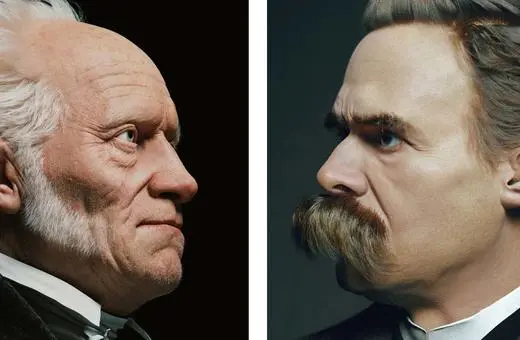Can we know how far we would go under other circumstances? No. But we can know the equation and many of the variables that steer us. And the better we know these, the easier we can improve on ourselves and be assured that we would know where to draw the line, where to halt steps down an avenue of human wrongs. The only obstacle is self-deception.
When in 1993-94 I worked in Mozambique for the United Nations peace process, I was involved in daily negotiations with leaders of both the government and the rebel movement RENAMO, most of whom we knew had ordered or personally committed horrendous atrocities during the civil war. It had been a seventeen-year long destabilization war mostly targeting the civilian population rather than being a confrontation of armies. The rebels had terrorized by the power of the gun in guerrilla style ambushes. The government soldiers had looted their own population with the indemnity of state power; chopping off breasts, noses or ears, mass rapes and killings, burying people alive, and even forcing children to shoot their own parents as preparation for becoming child soldiers, had been the order of the day. One would have expected that the perpetrators look like monsters. But they didn’t. You couldn’t even easily tell the worst culprits from the lesser ones. As with all other groups of human beings, some were friendly, some not, some forthcoming, fun, intelligent, even considerate, some not; their level of evil doing seemed to carry no immediate bearing as to behaviour or appearance. I’ve heard the same said about perpetrators of other war crimes. From the loving – and beloved – fathers amongst the most ruthless of Nazis to the (mainly Serb, but also other) generals responsible for the barbaric ethnic cleansing in the Balkan wars of the early 1990s. Many were great company, entertaining, protective, even warm and welcoming – for anyone not at the receiving end of the cruelties.
I’m convinced that this can only be possible because each one of them - those murderous, loving fathers, husbands and brothers (and, in a few cases, mothers, wives and sisters) - thought they were doing ‘the right thing’ when committing their horrendous crimes against humanity.
In their own eyes, they were the ‘good people’.
Given their situation, time and affiliation - ethnicity, religion, ideology, region, nationality or whatever may be the fault line - they were doing what was required, however harsh, to safeguard their community, their family, themselves. Or so they believed. Must have believed. Because those who didn’t, those who questioned the rightfulness of their raping, torturing, killing, those who may even have questioned if the enemy was truly an enemy, they were the ones turning misfits: loners, drunkards, drug addicts, brawlers, abusers, maybe wife beaters, suicidal or simply insane. They became the outcasts, unable to live in harmony with themselves and thus with their surroundings. Unable to fit into a society that condoned actions they themselves couldn’t embrace.
Were they deceiving themselves, these righteous murderers?
No, they would say. They weren’t even deceived by others. At the time of their actions (and most often years afterwards), they were convinced of doing, if not good, at least the imperative, the unavoidable, and therefore the fully justified and justifiable.




















Join the conversation